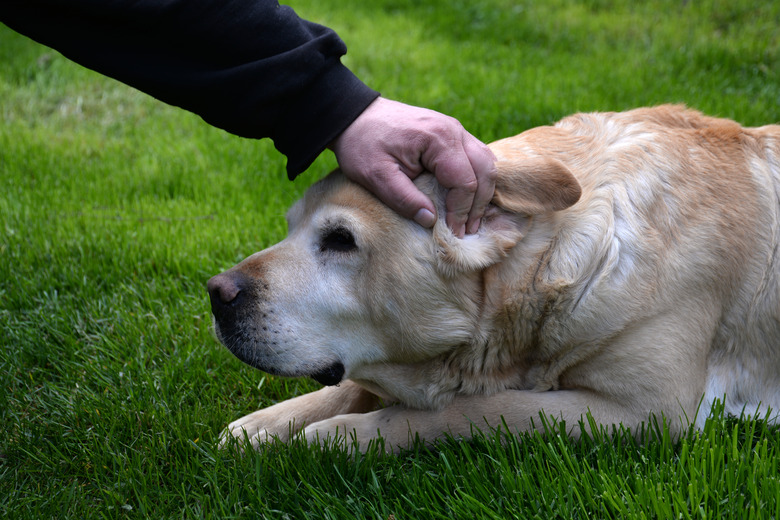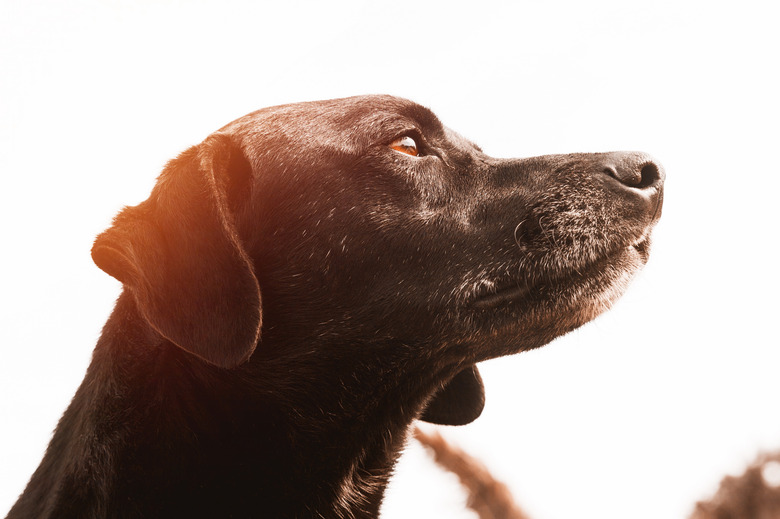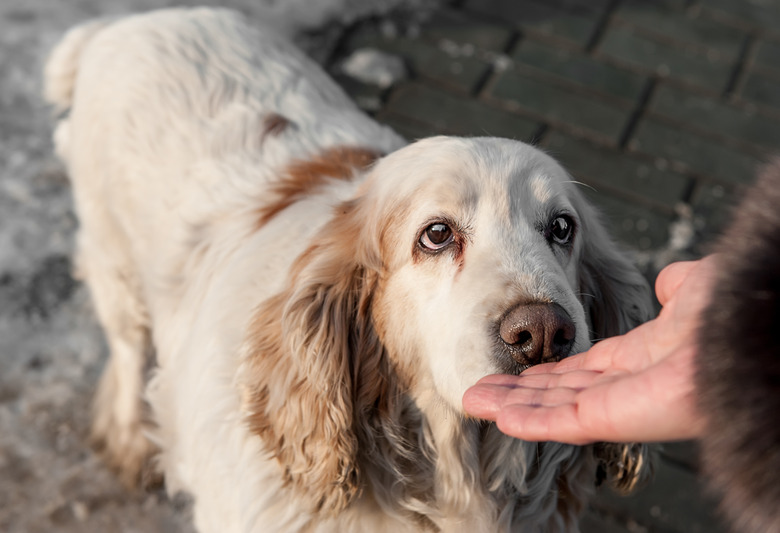Why Doesn't My Dog Like To Be Petted?
A dog is man's best friend. Dogs are known to be loving, playful, and affectionate, which makes them the perfect companions for humans. But not all dogs like to be petted. Some are just generally unaffectionate. Why is this? If your dog doesn't like to be petted or isn't all that affectionate, should you be worried? Let's find out.
How do I know when it's a good time to pet a dog?
How do I know when it's a good time to pet a dog?
If you're dealing with a new dog that is not your own, you don't know his personality yet — his likes and dislikes. Never assume that petting is safe and welcomed with any and every dog. Make sure to only pet a dog after you are sure he wants to be petted (and his owner says it's alright). To figure out if petting is appropriate, ask yourself the following:
- Is his tail high at the base over his back?
- Is he barking?
- Does he seem over stimulated?
- Is he staring at me with squinty eyes or is he ignoring me?
If the dog's tail is high at the base, this is a sign of over stimulation or dominance. A dog can also show dominance by staring at you intensely and is more likely to bite! Chances are, he doesn't want your hand on his head at the moment.
WOOF: Where Do Dogs Like To Be Pet?
A dog that is staring at something else, like an object or another animal is not focused on you and may not be aware of your presence. His focus should not be disturbed with a petting hand coming towards his face or body. This can also lead to a bite.
Look out for dogs with soft, squinty eyes and a tail that wags at a medium or low position. It is best if the dog sniffs your body, has a wide sweeping wag in his tail and a relaxed body. These are signs that petting is welcome!
Do some dogs naturally dislike petting or is this learned behavior?
Do some dogs naturally dislike petting or is this learned behavior?
With some dogs, the aversion to petting comes from birth. These dogs tend to be more independent and don't need much affection. This does not mean they don't love you or want to spend time with you. Physical touch just isn't as important to them, if wanted at all.
Dogs that are extremely dominant want what they want, when they want it (usually because they're spoiled). These dogs tend to demand constant affection or to be left alone entirely.
There are the unfortunate cases where the behavior is indeed learned. If a dog wasn't petted or shown affection as a puppy, he may reject affection as an adult.
Are there certain types of petting dogs do not like?
Are there certain types of petting dogs do not like?
Certain approaches to petting can send dogs running, whether they generally enjoy petting or not. You should only pet a dog that initiates contact. Squat down and get on his level, letting him know you are open to contact if he is. Don't hover over the dog when greeting him as this can be perceived as a threat.
WAG: How To Decode The Movements Of A Dog's Tail
Each dog is different but generally, dogs that enjoy petting like it on the chest, shoulders, and the base of the neck. Most dogs dislike being touched on the top of the head, on the muzzle, ears, legs, paws, and tail. Petting should be gentle and calming for both you and the dog. If you attempt to pet a dog and he responds with dominant behavior like showing the white of his eyes or raising a stiff tail, stop petting him and give him space.
How do I treat a dog that does not like affection?
How do I treat a dog that does not like affection?
Instead of cozying up with their owners, some dogs prefer to play fetch or other interactive games. They enjoy quality time through activity rather than physical touch. These dogs can play with you all day and then have no problem sleeping in their own bed, away from your loving touch — and that's perfectly okay! They clearly love you but will duck their heads when you pet them. Like with all relationships, you just have to learn your dog's love language and sometimes, that comes with a "hands off" caveat.
It's important for you (and your children) to know what your dog does and does not like. If he is over stimulated or showing dominant behavior, give him a chance to calm down. If he hits you with those squinty eyes and a low wagging tale, this may be your chance to gently try rubbing his chest or shoulders.
At the end of the day, if your dog does not enjoy affection, don't fret. Keep showering him with love through play, training, treats and toys! Even if he doesn't want to be petted, he will undoubtedly feel your love.
Always check with your veterinarian before changing your pet's diet, medication, or physical activity routines. This information is not a substitute for a vet's opinion.


